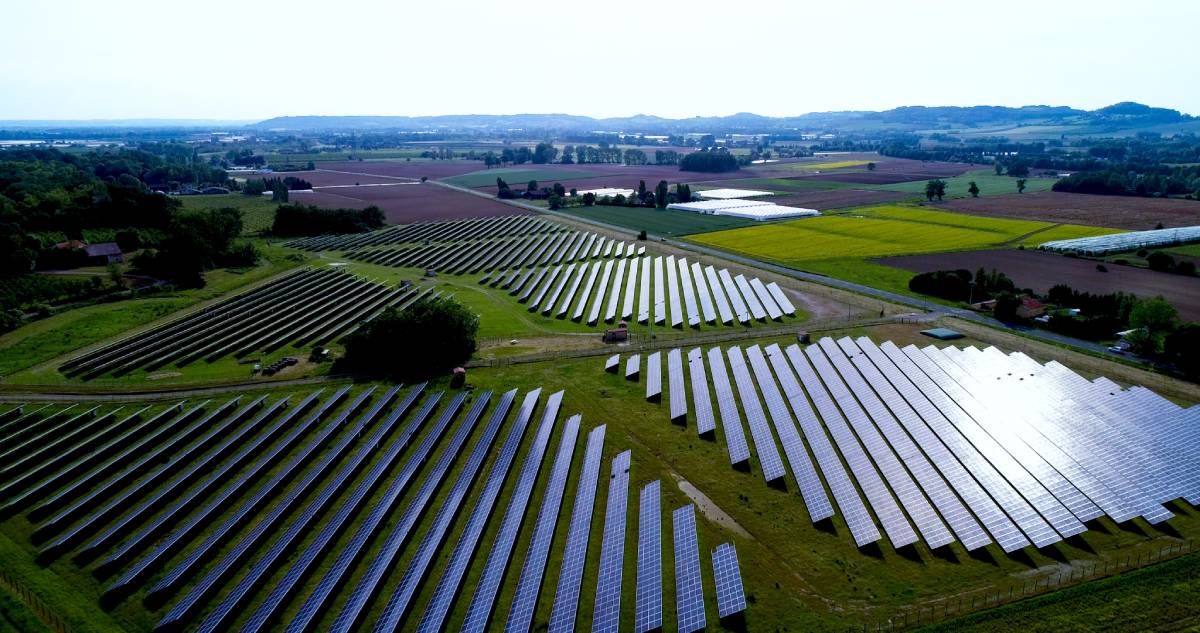23-02-2021
Twelve prominent organisations, including professional associations, energy and green industry stakeholders, as well as national park directorates have joined forces to create guidelines for the development of nature friendly large-scale solar parks in Hungary.
For the first time on the Hungarian solar market, the stakeholders provide guidance as a result of their joint work to draw attention of the public and professional communities on the importance of this topic.
The aim of the cooperation is to provide guidance to developers, investors and operators on the development, construction and operation of new generation, nature friendly solar parks.
Among others, ALTEO Energy Services Plc., BioAqua Pro Ltd., Bükk National Park Directorate, Geohidroterv Ltd., Hortobágy National Park Directorate, Hungarian Professional Beekeepers’ Association and STS Group offered collaboration in the professional work initiated by SolServices Ltd.
The land necessary for the installation of solar parks, the land covered by solar panels is going to inevitably grow. The ageing of the Hungarian power plant portfolio – the installed capacity of 8,900 MW still in operation at the end of 2018 will decrease to 5,000 MW within eight to ten years –, and the growing electricity demand – the annual electricity demand showed a 2.6% jump in the first quarter of 2020 – may even pose security of supply risks, unless the development of large-scale power plant gains a new impetus in the near future. The Hungarian government’s ambitious energy strategy targets – that the capacity of domestic photovoltaic power plants must exceed 6,000 MW by 2030 and get close to 12,000 MW by 2040 – can only be met, if the development of solar parks are in line with the environment protection and fully considers the ecological requirements and characteristics of the sites.
“Throughout the development of nature friendly – so called New Generation – solar park, three fundamental pillars need to be considered: the achievement of maximum energy generation, the compliance of nature conservation principles, and above all, the regulation of organic farming.
During the development of our nature friendly large-scale solar parks, we are in discussion with numerous sectoral companies, environmental authorities, local organisations and farmers, and according to our experience, these pillars – although one by one can be discovered in the operation of developers and investors – have not yet been organised into a unified system. We are pleased that the most prominent associations and sectoral stakeholders of the Hungarian market have offered their professional experience and knowledge to fill this gap together.”, said Gábor Farkas, Managing Director of SolServices Ltd., the company that initiated the cooperation.

The recommendations, being prepared in the collaboration of the 12 organisations, remedy this situation and not only provide a theoretical guidance for future developers, but also provide practical tools through tangible examples.
The significance of the initiative is underlined by the fact that the government’s renewable energy targets cannot be realised without large-scale solar projects. However, large-scale solar parks will make it possible to significantly reduce the country’s energy import dependence through clean electricity production based on domestic energy source, and at the same time increasing the security of supply by exploiting the competitive advantage over the fossil fuel-based producers that still dominate the region to this day.
The sectoral recommendation is expected to be made available to those interested in the form of a white paper in the second quarter of 2021.
(Photos: Shutterstock)
